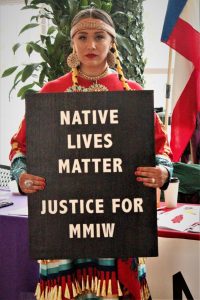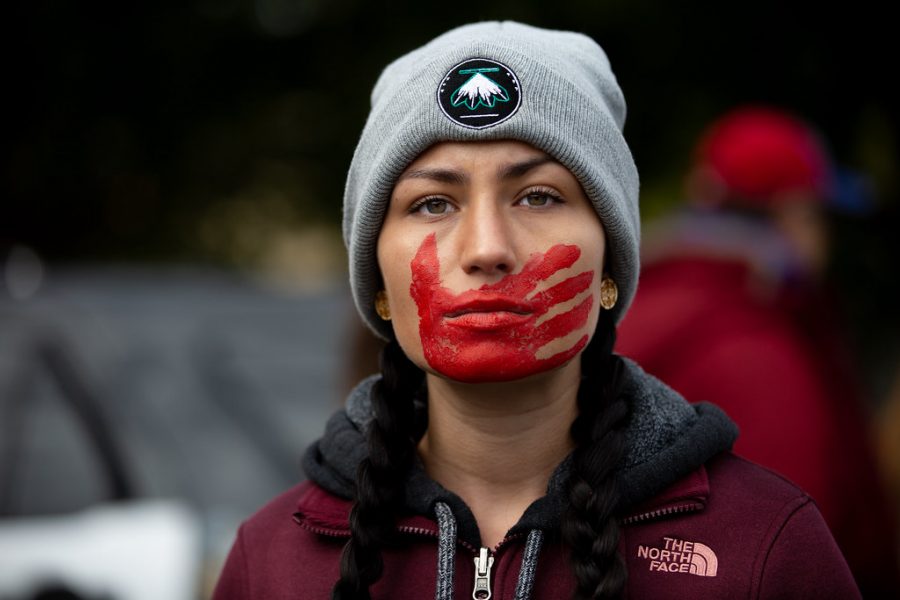Barron: Incomplete Data Costs Indigenous Lives. One Utah Legislator Has a Plan to Fill in the Gaps.
Utah has been specifically identified as one of the states with the highest number of Missing and Murdered Indigenous Women and Girls (Courtesy Flickr)
February 29, 2020
In 2008, the Department of Justice released sickening statistics regarding violence toward Native American women. They found that Native Americans disappear at twice the rate per capita compared to white Americans, and that in some areas Native women are murdered at rates 10 times the national average. These statistics are already alarming, and it is even more concerning that they are likely incomplete. A 2018 study published by the Urban Indian Health Institute (UIHI) found that only 2% of 2016’s Missing and Murdered Indigenous Women and Girls (MMIWG) cases were logged into the DOJ’s database.
Utah has been specifically identified as one of the states with the highest number of MMIWG. While the data is sparse and often difficult to access, UIHI combed through police records across the country and found that since 1990, the Salt Lake Police Department has responded to at least 22 homicides where victims were identified as Native women. This number is alarmingly high, as Native people make up only 1.5% of the state population and are commonly racially misidentified.
Concerned by local and federal data regarding the sheer number of MMIWG, Utah State Rep. Angela Romero has proposed H.B. 116, legislation that will establish a state-sponsored task force focused on reducing the violence experienced by Native women, girls and LGBTQ+ individuals in Utah.

If passed, the task force will consist of researchers, tribal members and law enforcement officials. Together they will identify the causes of this violence, find and address gaps in how data is currently collected on Native victims, and recommend improvements to the criminal justice system and social services to better serve Utah’s Native people. Sound policy cannot be created without comprehensive data or collaboration between community stakeholders, and H.B. 116 is an important step toward saving lives.
We know Native women and girls face extreme violence. The Center for Disease Control and Prevention reports that murder is the third leading cause of death for Native women younger than 20, but federally collected data focuses solely on violence occurring on reservations, excluding urban areas where 70% of Native people live. This gap in our knowledge perpetrates the wider myth that indigenous women and girls living off-reservation are not affected by the same level of violence. Additionally, I could not find any DOJ statistics focusing on murdered or missing LGBTQ+ Natives, even as research shows that this community experiences high rates of sexual (85%) and physical assault (78%).
Incomplete data makes it difficult to understand the scope of the violence experienced by Native women, girls and LGBTQ+ individuals. As long as data is incomplete, legislation to combat this epidemic utilizing current data will likely ignore the needs of many vulnerable Native people, rendering it ineffective. Savanna’s Act, a congressional bill sponsored by Senator Lisa Murkowski (R-AK), ignores violence experienced by Native people living off-reservation — even though the bill’s namesake, Savanna Greywind, was murdered while living in Fargo. A task force that ensures the collection of comprehensive data on murder and missing indigenous women, girls and LGBTQ+ individuals will lead to robust legislation and policies protecting this community.
Colonization is often viewed as a historical event, yet it continues in Utah to this day. Its modern form is white outrage over the designation of Bears Ears National Monument, threats to split San Juan County after the election of Navajo politicians and a resolution to preserve racist high school mascots. Colonization has played a key role in creating the MMIWG crisis, as our colonial justice system has allowed kidnappers, rapists and murderers who target indigenous people to walk free. Open conversation between law enforcement officials and tribal members will not only identify how our justice system and social services fail Native people, but it is also the first step to resolving these deficiencies.
We know from the partial data available that murdered and missing indigenous women, girls and LGBTQ+ individuals is clearly a crisis in our country and in Utah. We also know that the only clear path forward is to establish and support a task force of community stakeholders focused on solving this epidemic. Thankfully, H.B. 116 has passed in the House. Failing to pass H.B. 116 in the Senate would be a failure to save vulnerable Utahns.








